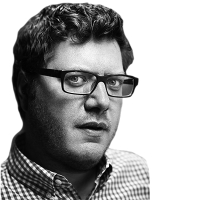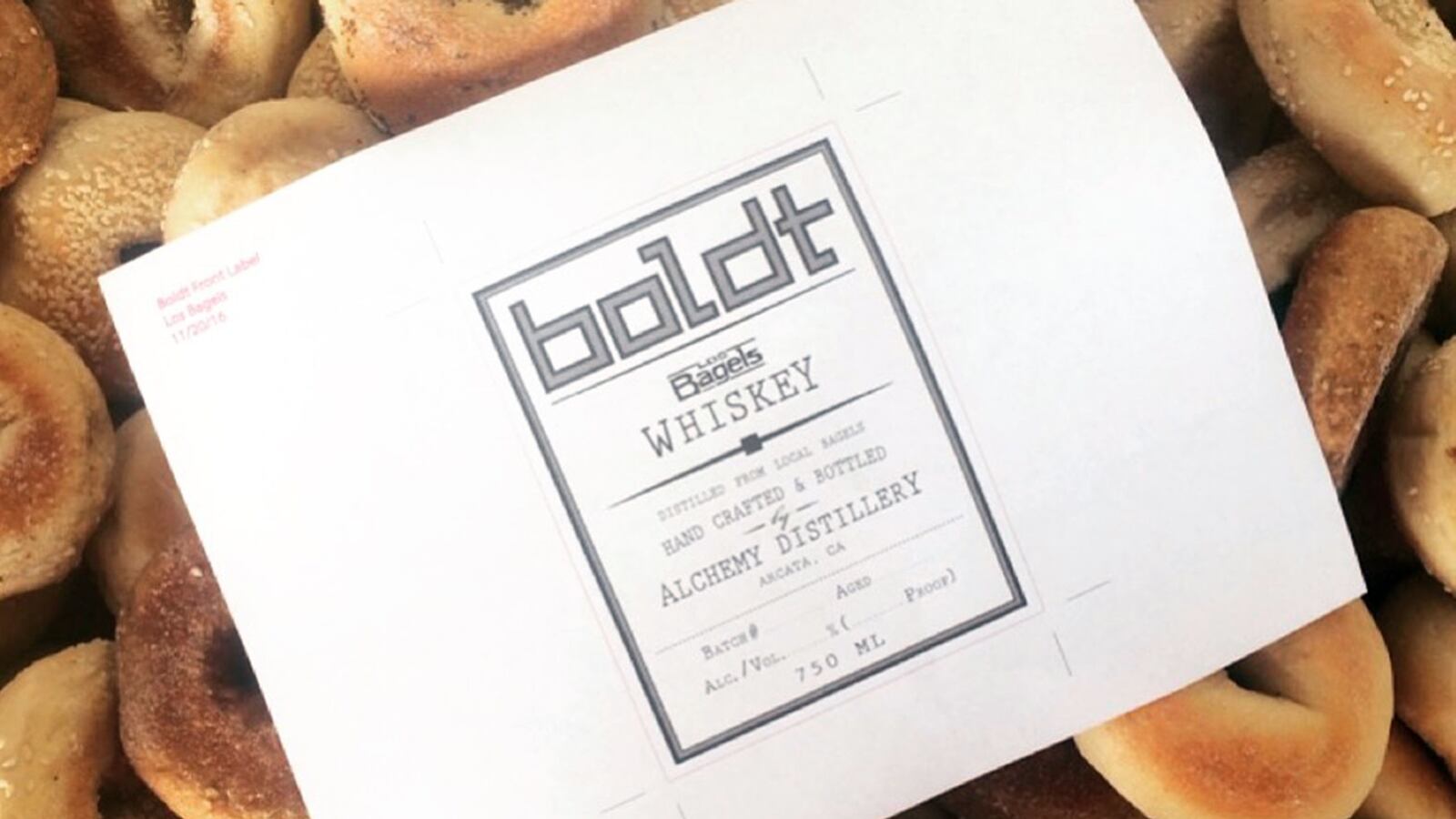Like many people I know, Amy Bohner has a bunch of bagels in her freezer. But these bagels are not destined for the breakfast table, nor will they ever get a schmear of cream cheese or a layer of lox. These bagels are destined for a higher purpose: whiskey.

While a number of vodka companies have rolled out donut-flavored spirits, Bohner’s plain, multigrain, sesame and poppy-seed bagels will be used to make the actual alcohol. It sounds crazy, but Bohner and her company, Alchemy Distillery, in Northern California’s Humboldt County, were inspired by the British brewery Toast Ale, which uses leftover bread to make beer. She approached local company Los Bagels and started getting its stale bagels, which had previously gone to feed pigs. (The animals still get the whole-wheat raisin, jalapeño, garlic, onion, salt, Parmesan and everything bagels.)
Once a week, Bohner collects 60 pounds of bagels and freezes them until there are enough for a run. The bagels are then ground up using a brand-new commercial-grade wood chipper, then fermented and distilled like corn, barley, or rye. The first batch is currently aging in a charred new American oak barrel and she is hoping to release the first bottles by Hanukkah. With any luck, the Boldt Los Bagels whiskey will become a part of the distillery’s permanent portfolio.
While this project may seem a bit out there, Bohner belongs to a new generation of distillers that are experimenting with a range of ingredients and techniques to create a wide variety of whiskies that don’t fit into traditional categories. This is the next frontier of American whiskey distilling.

Just down the coast from Bohner in Alameda, St. George Spirits has an equally creative project, Baller single malt whiskey ($65). Lance Winters, its wildly innovative and talented distiller, bills it as “a California take on the Japanese spin on Scotch whisky.” (A meta whiskey, if there ever was one.) The spirit, which was introduced last spring, is made exclusively from American barley and is aged in a combination of old bourbon barrels and French wine casks. But it’s also filtered through maple charcoal and then aged again in a barrel that had held a house-made Japanese-style plum liqueur. (Don’t judge: The delicious 12-year-old Hibiki from Beam Suntory also includes whisky that has been aged in Japanese plum liqueur barrels.) Baller is available just in California, but a new batch is going to be released in a few weeks. While it has more than enough complexity to be sipped, it was made to be mixed in highballs and other cocktails.

Across the country in the heart of New England, Berkshire Mountain Distillers is taking its finished bourbon and aging it for a second time in a barrel that previously held smoky and peaty Islay single malt Scotch. The finished product is almost a hybrid of bourbon and Scotch. The name of the whiskey is, naturally, Smoke and Peat, and will be on shelves shortly and costs $60.

Hillrock Estate Distillery, which is just south of the Berkshires in the Hudson Valley and run by legendary distiller Dave Pickerell, is going even further and treating its barley with Scottish peat smoke. The distillery has put out a number of these Scotch-like single malts that cost around $100. Look out for its single malt that has been finished in Oloroso and Pedro Ximenez sherry casks and smoked for between eight and 12 hours. A few other companies have also produced some smoked American whiskies, like Balcones in Texas, whose Brimstone helped put the distillery on the liquor map.
One of the most interesting category-bending American whiskies to come out recently not only is influenced by old-world distilling traditions but was dreamed up by the Irish-based Connacht Whiskey Co. The aptly named Brothership is a blend of 10-year-old American whiskey and 10-year-old pot still Irish whiskey. (It’s available in select markets and sells for about $50.) High West out in Park City, Utah, also makes an international blend. Its acclaimed Campfire ($70) is a mix of bourbon, rye, and Scotch. What seemed like a lark when it was introduced a few years ago, Campfire has now become one of the company’s most popular spirits.
As the whiskey world grows ever larger, no doubt some of these experiments will become bar staples. But I’m just hoping that the bagel whiskey is a sensation and it becomes its own category. Brunch will never be the same!






